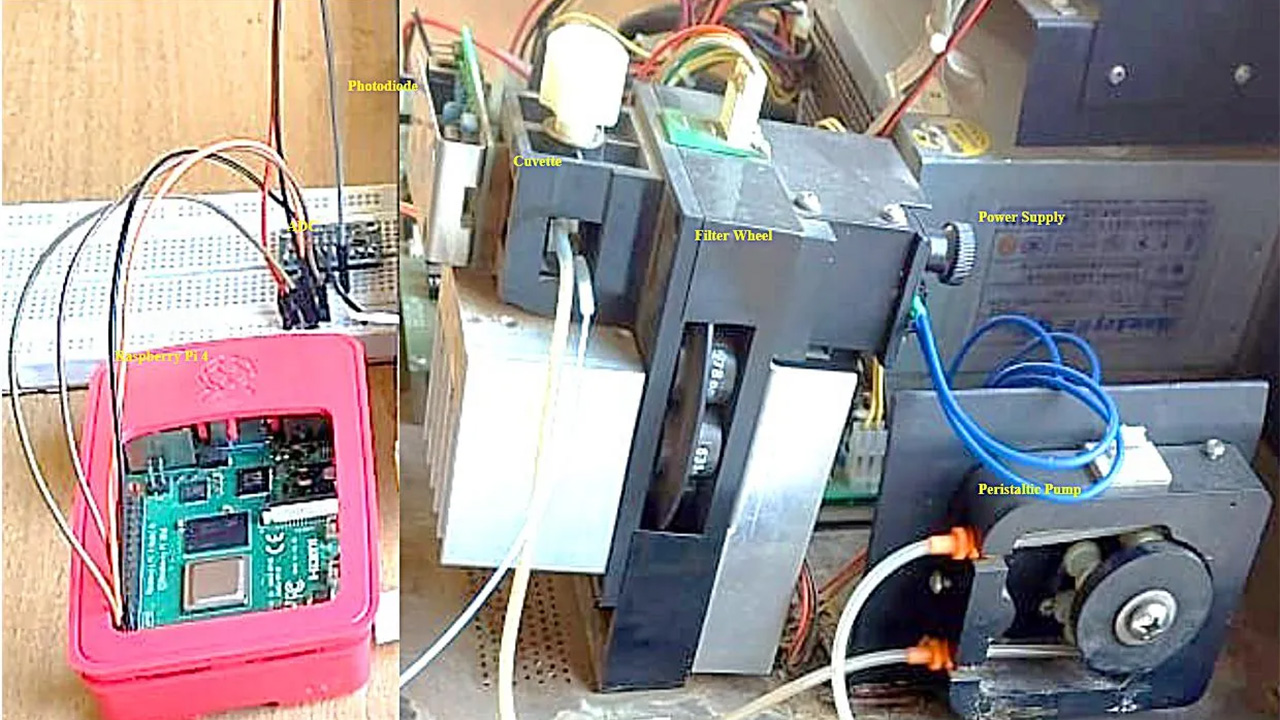Raspberry Pi Used as Blood Analysis Tool
Researchers in India use Raspberry Pi to diagnose illnesses
Researchers in India have created a cheap blood testing kit from a Raspberry Pi 4, using light and an automated fluid dispenser to help analyze any biochemical substances in the blood sample. The work, by Sangeeta Palekar and Jayu Kalambe of Shri Ramdeobaba College of Engineering and Management, has been published in the journal IEEE Sensors and reported by IEEE Spectrum.

Blood tests in India are mostly carried out near more highly populated areas, where they can be analyzed in a laboratory. The new mobile kits produce results consistent with those from the lab, do their work in half a minute, and allow blood testing to be rolled out to the country’s vast rural areas.
"Routine blood tests can help track and eliminate the threat of many potential diseases," the paper’s co-author Sangeeta Palekar explained to IEEE Spectrum. "The platform offers the advantages of automation, low cost, portability, simple instrumentation, flexibility, and an easily accessible interface," she continued. "Overall, the proposed framework is an attractive solution to be incorporated in the low resource area as a universal platform for all biochemistry analysis."
By shining light through the blood, changes in its intensity can be measured, and by adding controlled amounts of reagent to the blood samples, different constituents of the blood, such as red cell levels or glucose concentration, can be tested for. By changing both the reagent and the light wavelength, many biochemical substances in the sample can be tested.
Next steps for the project include expanding the number of substances it can test to include proteins, cholesterol, and other common blood constituents, plus integration with an IoT platform to allow remote monitoring.
Get Tom's Hardware's best news and in-depth reviews, straight to your inbox.

Ian Evenden is a UK-based news writer for Tom’s Hardware US. He’ll write about anything, but stories about Raspberry Pi and DIY robots seem to find their way to him.